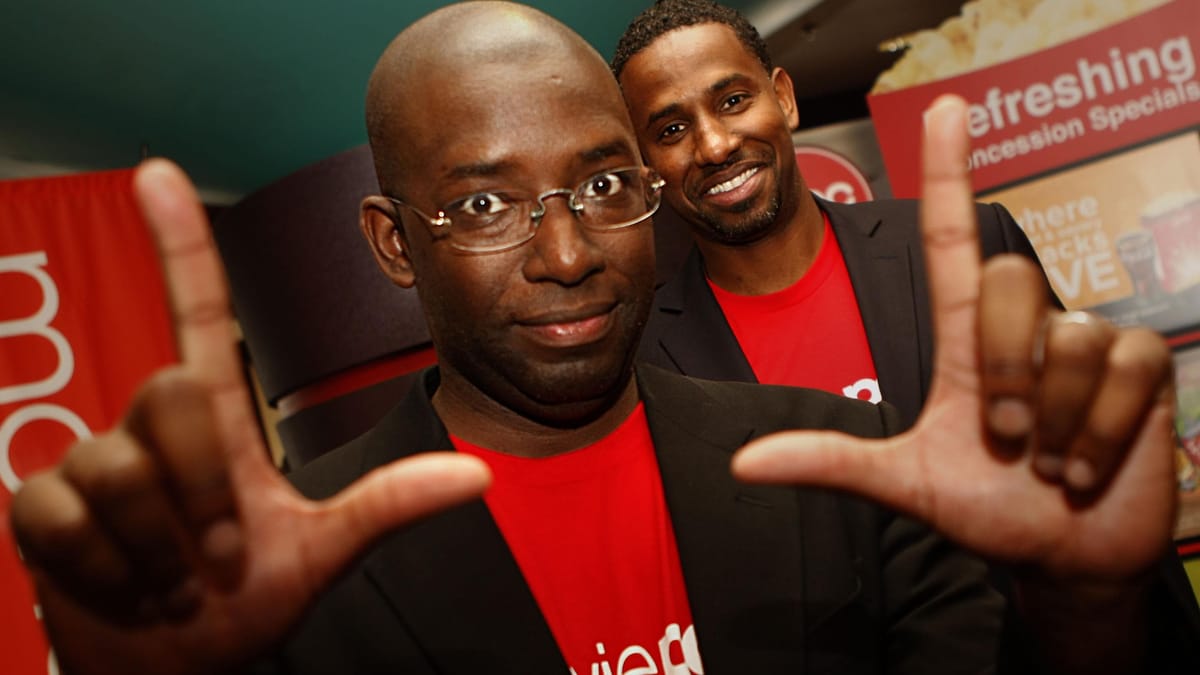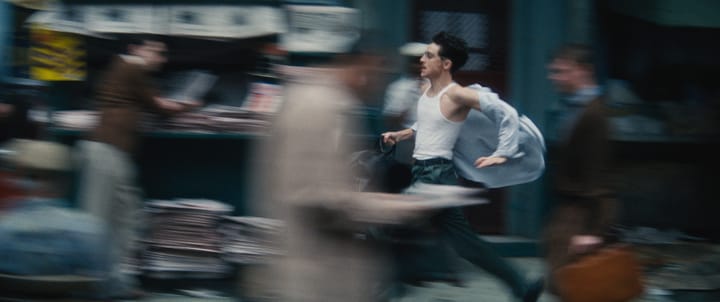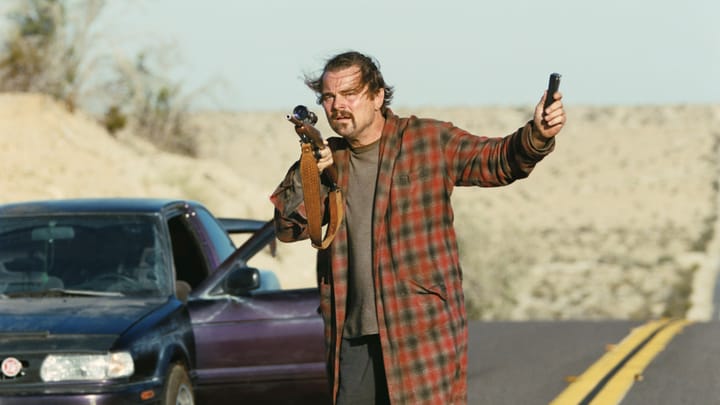MoviePass, MovieCrash: Late Stage Infinite Growth

In August 2017, when MoviePass lowered its prices to $9.95 a month, it was the greatest thing to happen to the moviegoing experience in a long time. For most people who were starting to get priced out of going to the theater regularly, it was a no brainer. Being able to essentially earn its value by seeing one movie a month was a pretty low effort baseline, and it opened up a world of possibility without the barrier of having to choose what was worth spending your money on. You could take a gamble on anything; best case you would discover something unexpected and great, worst case you would see something terrible without feeling like you’d been cheated. It was such an insanely unrealistic deal that the majority of MoviePass users all operated under the same assumption – that this ludicrous value was unimaginably unsustainable, but that there was no reason to worry about it. For now, MoviePass was footing the bill, and it was time to hold on for dear life until the train completely derailed.
Ostensibly, these same people are the audience for Muta’Ali’s HBO documentary MoviePass, MovieCrash. Being along for the MoviePass ride was a wild experience, a magical year that now feels like some kind of twilight fever dream we collectively lived through. They were constantly on the brink of bankruptcy, every day was another breaking development in its weird history, a company that seemed interested in just about everything other than actually running a business. The doc presents itself as being a peer behind the curtain, insight into just how this became such a laughably handled business model that was a case study in the folly of venture capitalists and the concept of infinite growth.
The problem is that the film seems to be working backwards from its intended conclusion rather than investigating the reality of these ‘disruptive’ tech startups. The film’s intended conclusion being that MoviePass co-founders Stacy Spikes and Hamet Wyatt were visionary geniuses who turned the entire world of film upside down only to be robbed of their creation by greedy con men determined to ride the idea straight into the sun until it burned them up along with it. This is partly true, and it does read as an infuriatingly familiar story of American business racism, where the two black founders of a company were deemed unmarketable entrepreneurs requiring the assistance of white men with venture capital clout to raise funds for their platform; men who would eventually take over and strongarm them out of the company.
Spikes and Wyatt built MoviePass on the notion that they could corner a niche market with a niche service, and that by catering to the needs of an unserved niche they could create a platform with meaningful value. Despite constantly offering empirical evidence to the contrary, the film wants to frame their early version of the platform as a glorious success that was turning the movie industry on its head with its revolutionary service. Its only interest is in exalting and redeeming these two men who had been treated terribly and ousted from their own creation. It wants to reach an uplifting conclusion, the now often unknown fact that MoviePass still exists today and that it has been rightfully reclaimed by Stacy Spikes. It's clear when the doc is trying to spin a specific narrative because these ideas are almost entirely in opposition to everything that’s actually being shown by the doc itself. A sort of filmic dissonance, desperately grasping at a conclusion that is in no way supported by the evidence.
The film frames it as bad luck. In the early days, Spikes and Wyatt had a viable product supported by a core userbase. Their ideas were ‘disruptive’ (a noxious Silicon Valley buzzword that I will continue to put in quotes) enough that theater chains tried to shut them down initially, and even after they patented their own novel tech to circumvent their previous roadblocks, deals just fell through out of pure unfortunate circumstance. As a result, they were left with unstable cashflow and were running out of options. The only option left being for them to bring on a new face of the company who would foreseeably be able to access new capital. The film isn’t wrong when it proves former Netflix executive Mitch Lowe to be a psychopathic, predatory opportunist who would steal the company, defraud investors, lie to users, and cash out after living the high life as CEO for as long as possible; it is wrong when it frames this as everyone else being the downfall of MoviePass when it was already failing long before it was run into the ground in spectacular fashion.
There’s no evidence to support the film’s invented idea that in some nebulous, alternate reality this service could have been a booming success. Really, it ends with AMC CEO Adam Aron deciding not to partner with a then tiny MoviePass and instead embarking on a journey to create a subscription service for the chain itself. At that time, MoviePass was small, low on cash even with a higher price point, and nowhere near being a nation sweeping cultural object. Yet the doc goes to such lengths to conflate the eventual meteoric rise of the company with the efforts of Spikes and Wyatt, presenting it as though their ‘disruption’ of the movie theaters was disconnected from the ludicrous and unsustainable business practices of Lowe and venture capitalist Ted Farnsworth.
It’s presented as very Manichean, a united force of good systematically destroyed by two bad actors. The reality of course is not only somewhere in between but also entirely removed from this isolated incident, and the far more interesting path would have been to interrogate the systemic failures of our economic system that continually reward these kinds of bad actors. While Lowe and Farnsworth may be on trial it feels almost irrelevant in the grand scheme of things, and likely above all else that their only consequences will be light financial slaps on the wrist while they move on to their next fraudulent enterprise. What’s lost in the shuffle is the collective avarice has poisoned an entire country, an idea that is seen in passing but has been missed or cast aside by the filmmakers. The corrosive brain rot of “line goes up” permeates the film – looking at retail investors and affable MoviePass users to build up this idea of faith in the stock, that they all believed they had found the next big thing. It sort of attempts to frame it like they believed in the concept of MoviePass while also revealing that, like everyone else, they just see it as a potential way to get rich. A talking head posits that the users weren’t being sold tickets but instead being sold a stock. “In both cases, you leave with nothing,” he says, and then after a pause, “except the memories, I guess.”
Dangerously close to nailing it, but of course the doc just moves on, leaving it as just an empty sentence that's emphatic enough to feel profound. But it’s a completely false equivalency, because the users didn’t leave with nothing; they had saved hundreds or thousands of dollars going to see movies while they watched the wings on their little red cards slowly melt off over the course of a year. Any cinephile who experienced the fever pitch of MoviePass has countless memories tied to the experience of going to the theater to see anything and everything over the course of that year. The film seems to believe that the real tragedy is that retail investors lost a big payday by investing in a fraudulent business, and constantly shows people who pretend like it was an out of nowhere shock when it turned out the company was losing $150 million year over year.
MoviePass, MovieCrash isn't really about the tragedy of two men getting an unsustainable idea stolen from them. It doesn't realize it, but it's really about the tragedy of the everyday employees who were actually making all of this function, leading normal lives and being impossibly overworked while opportunists and criminals wormed their way into an executives club that wasted every dollar on enriching their own lives through lavish parties and absurd promotions under the guise of marketing. Engineers being asked to commit crimes and intentionally break the app to decrease cash deficits, and the minuscule customer service team asked to then respond to the scores of infuriated customers whose service and access had been broken without warning. Near the end, a former customer service employee frames his time at the company as a valuable learning experience, holding onto his red MoviePass MasterCard as a lingering memory. Then he learns that those original red cards are being sold for as much as $1,500. "This bitch will be on eBay tonight. Guaranteed," he exclaims. Meanwhile, Mitch Lowe wrote a book about his 'embarrassing failure', does public speaking, and serves as an advisor to Regah Ventures, an angel investment firm, all while awaiting trial for securities fraud. When guys like him stay rich, the "MovieCrash" part becomes completely irrelevant. He'll find more suckers to pay for his lifestyle, a new startup with which to exploit everyone else. The rest of us need to make rent, not gather learning experiences.





Comments ()